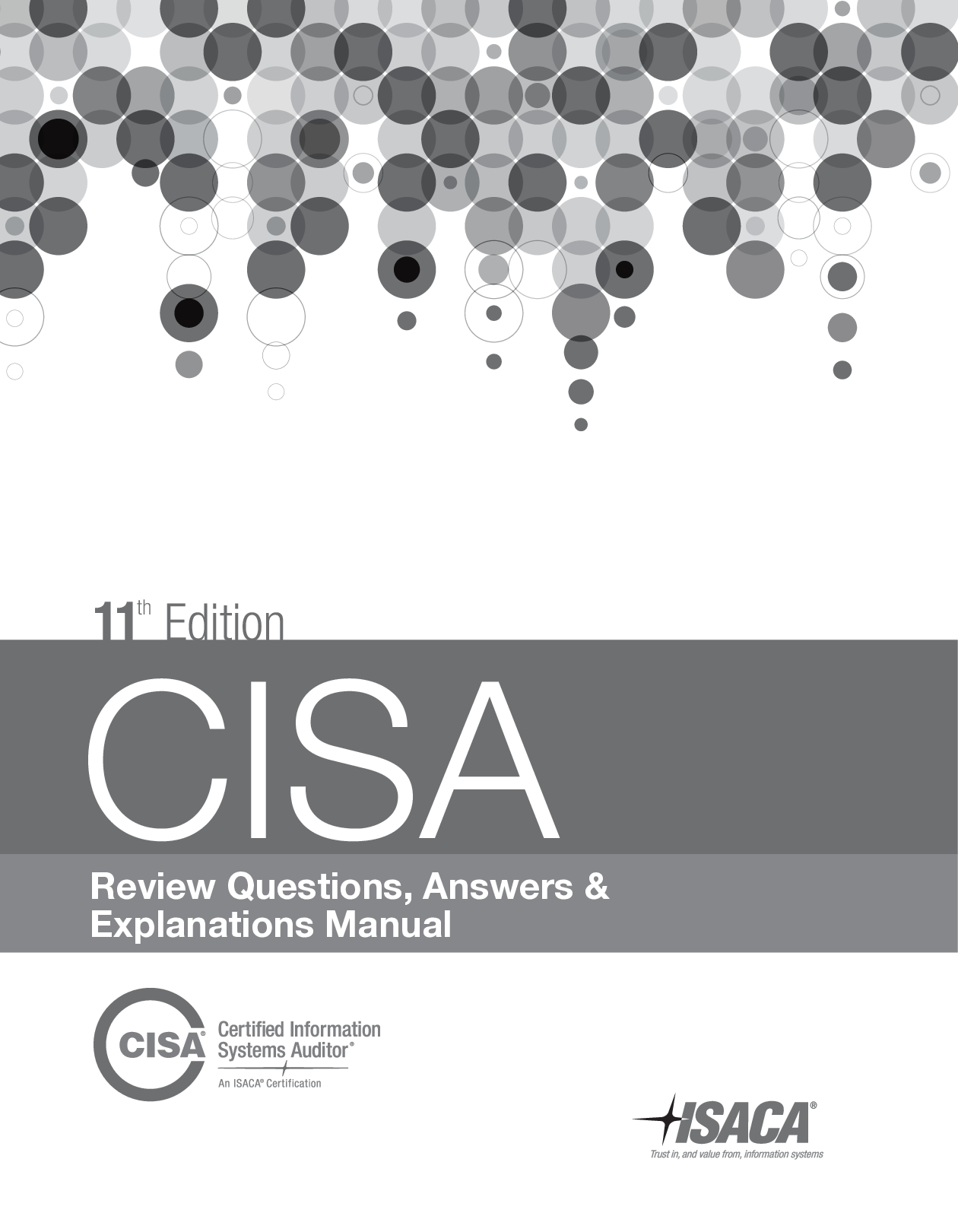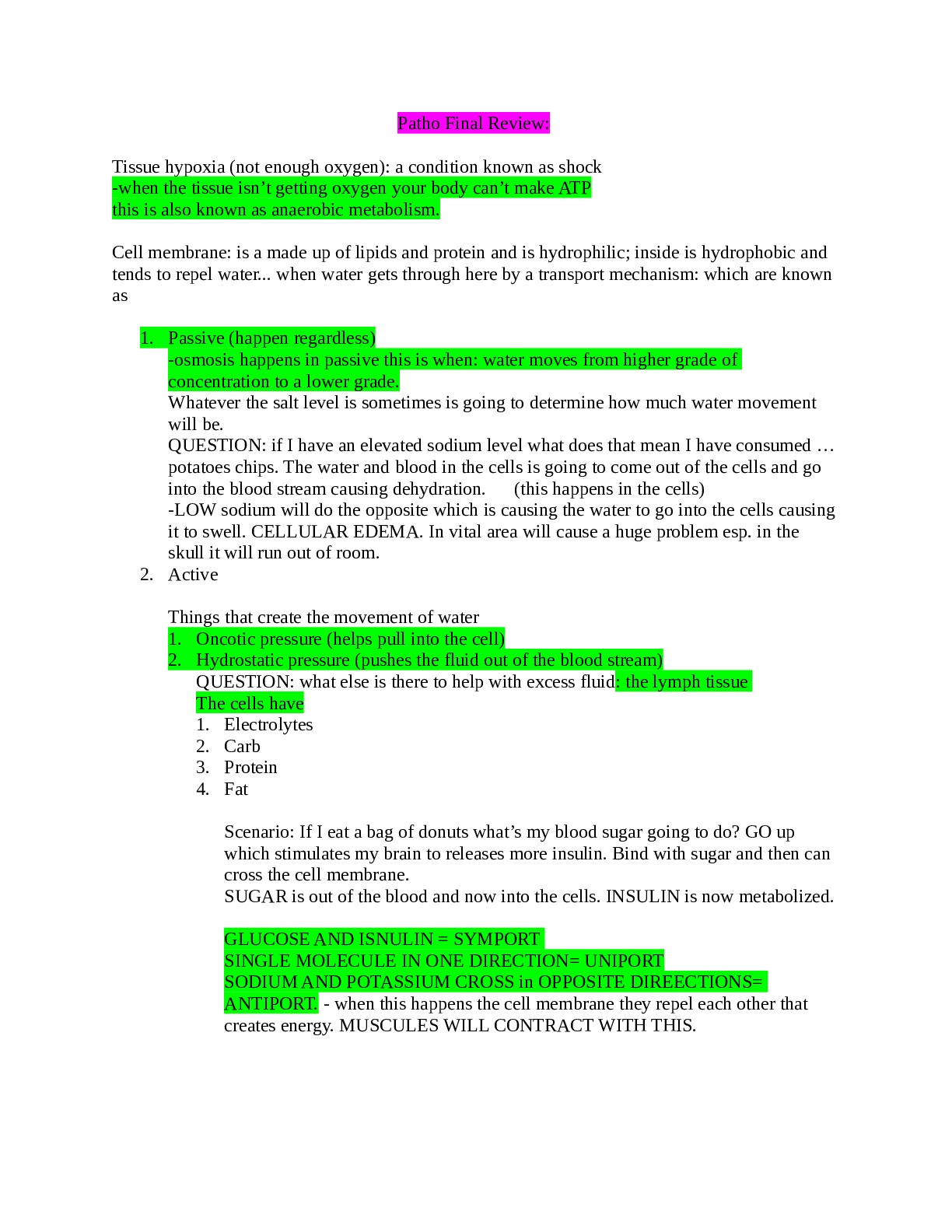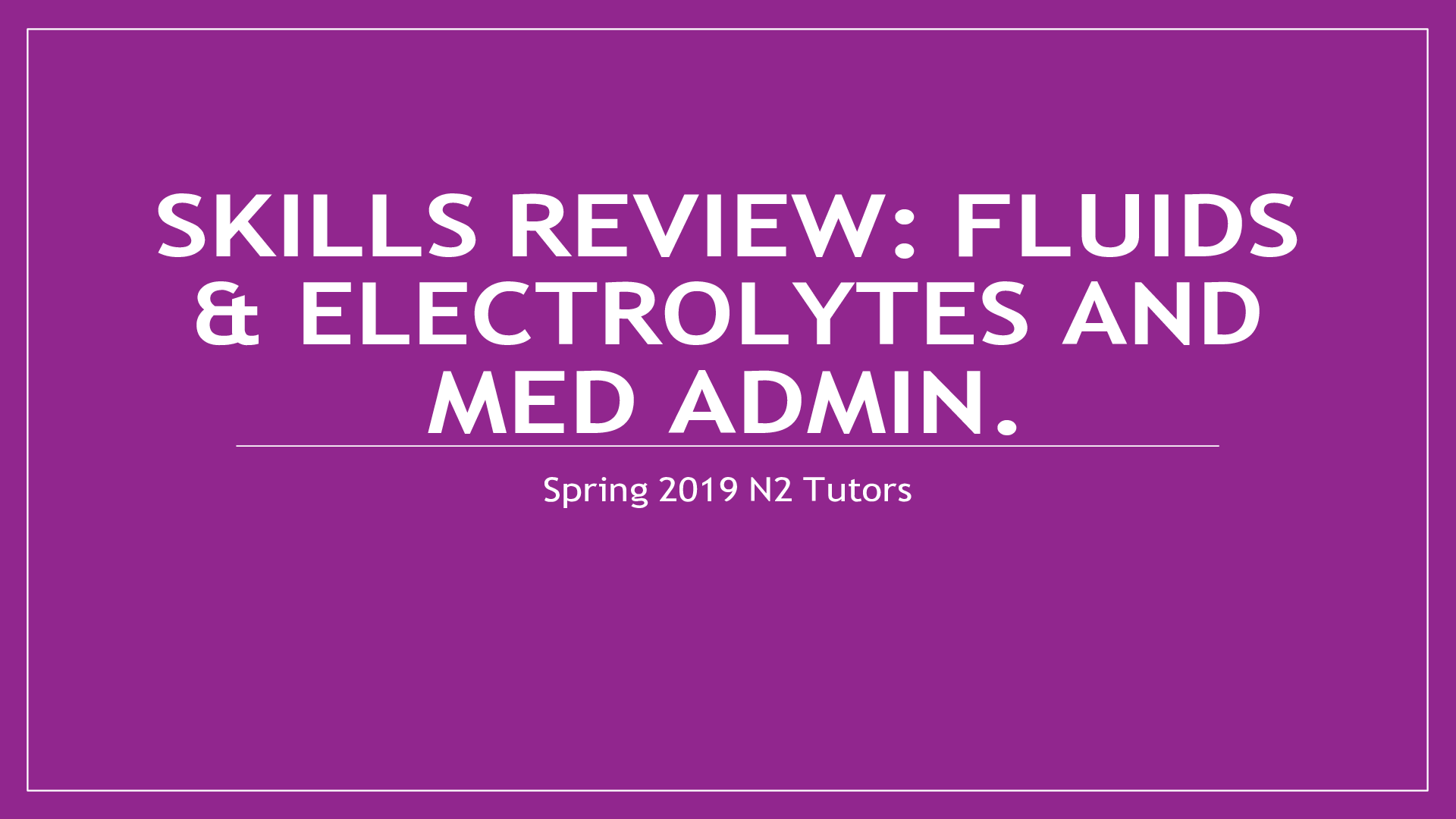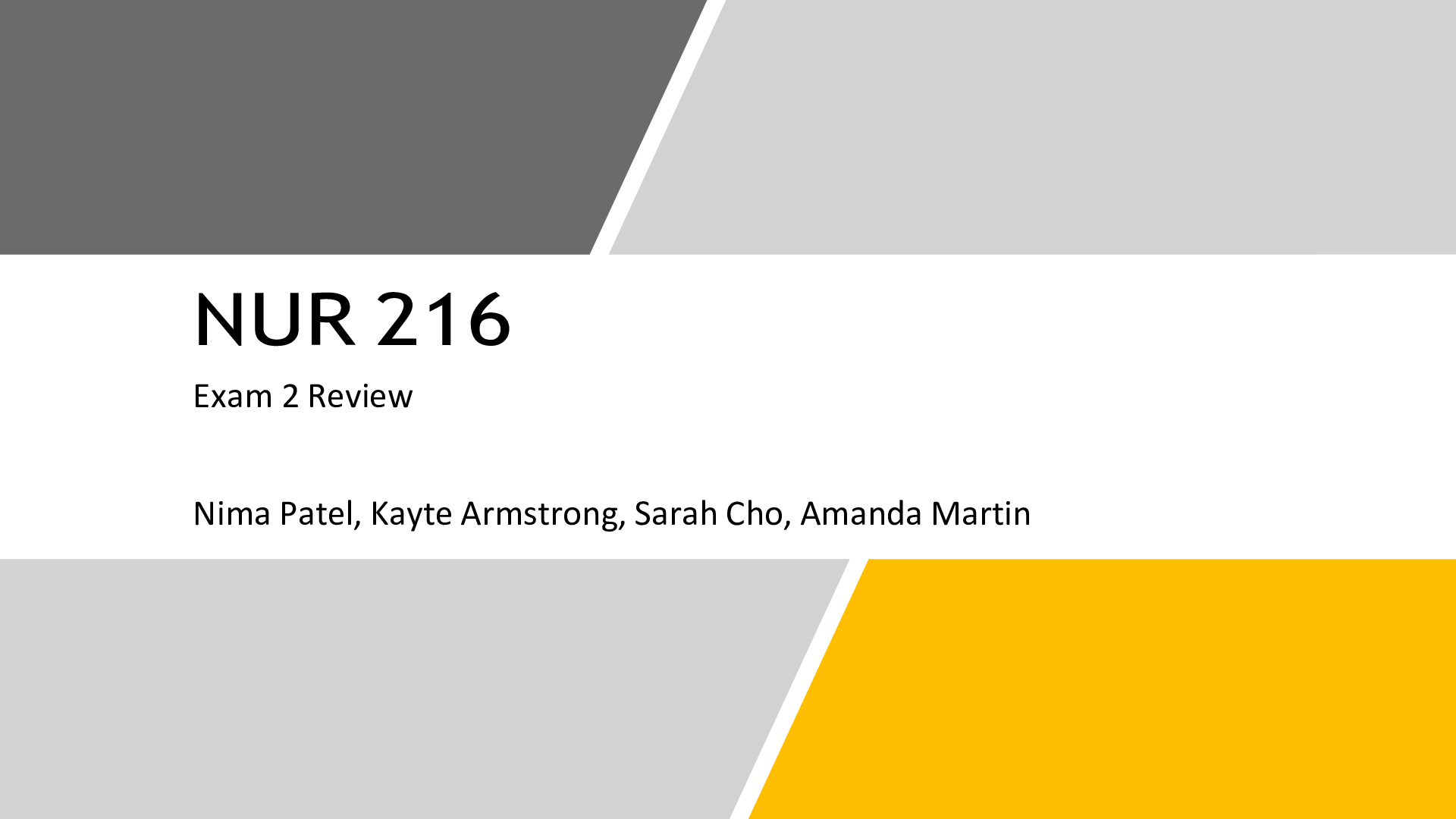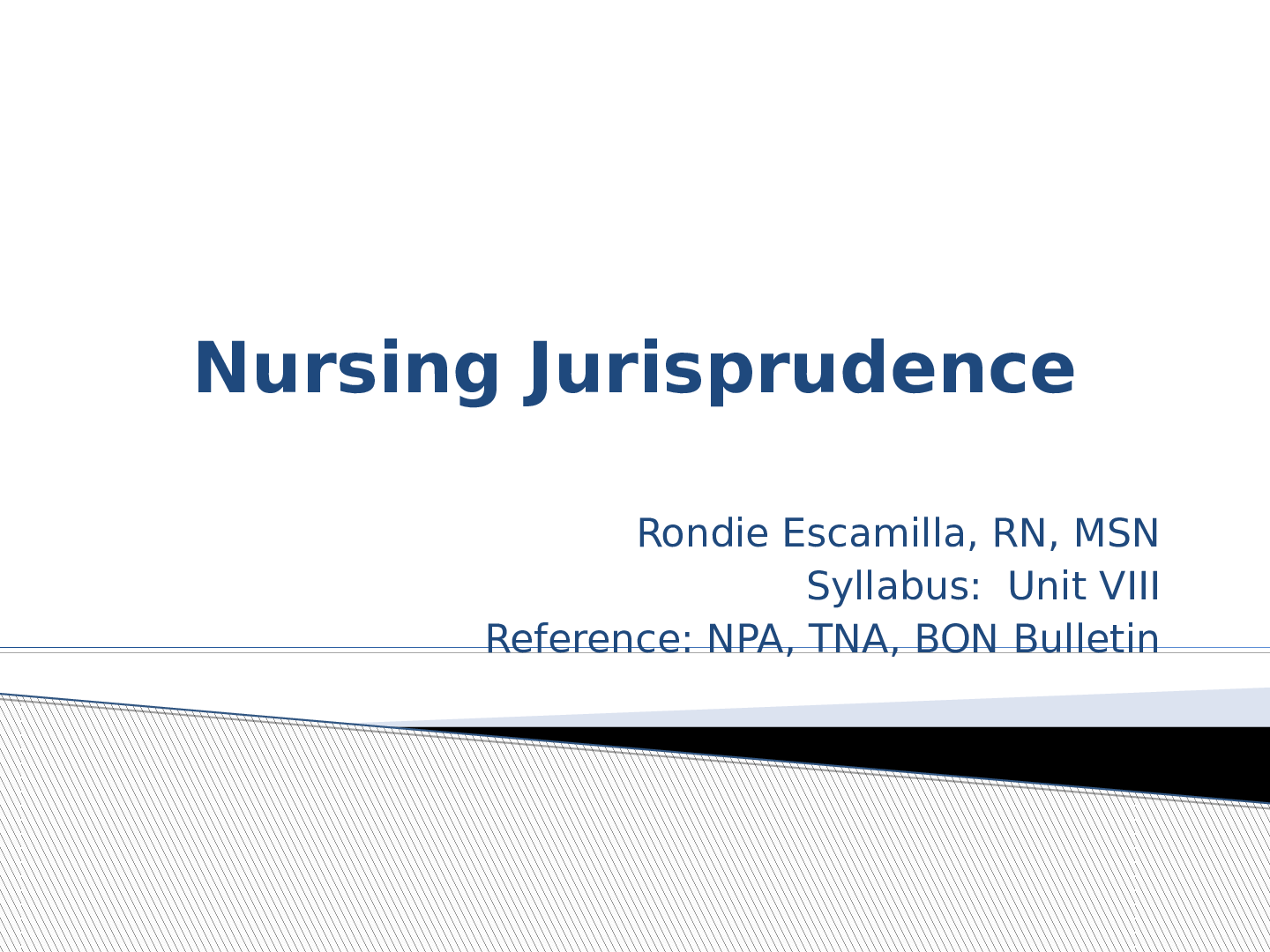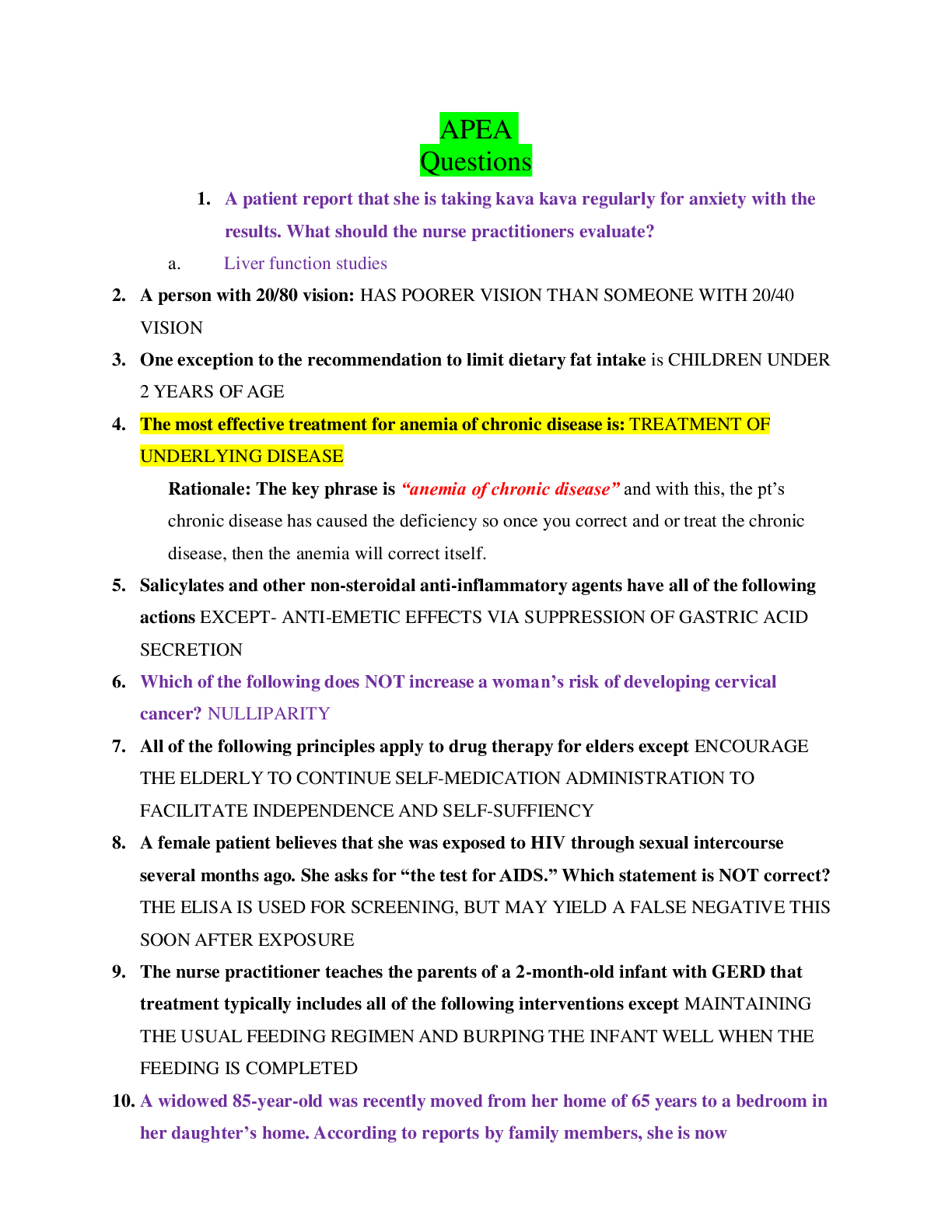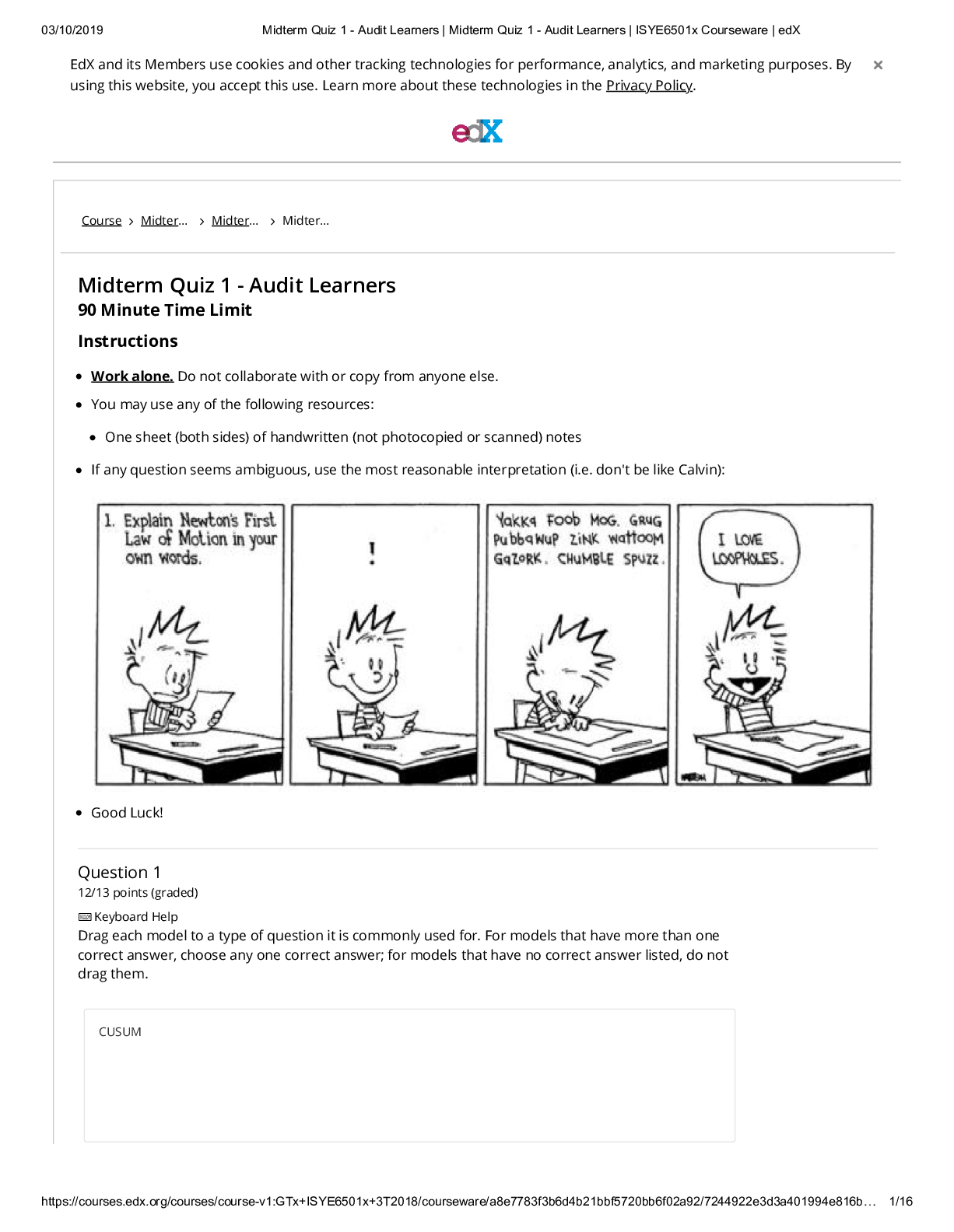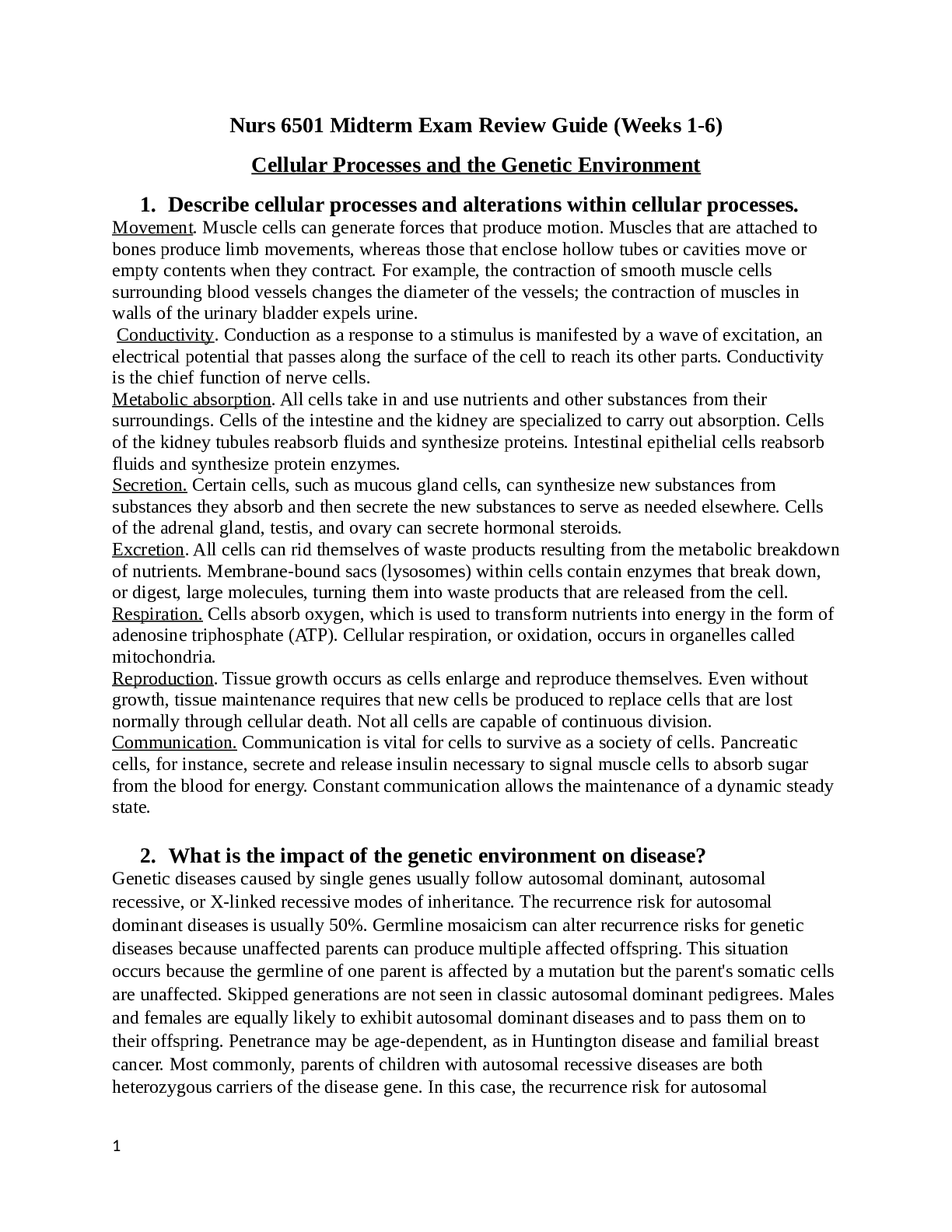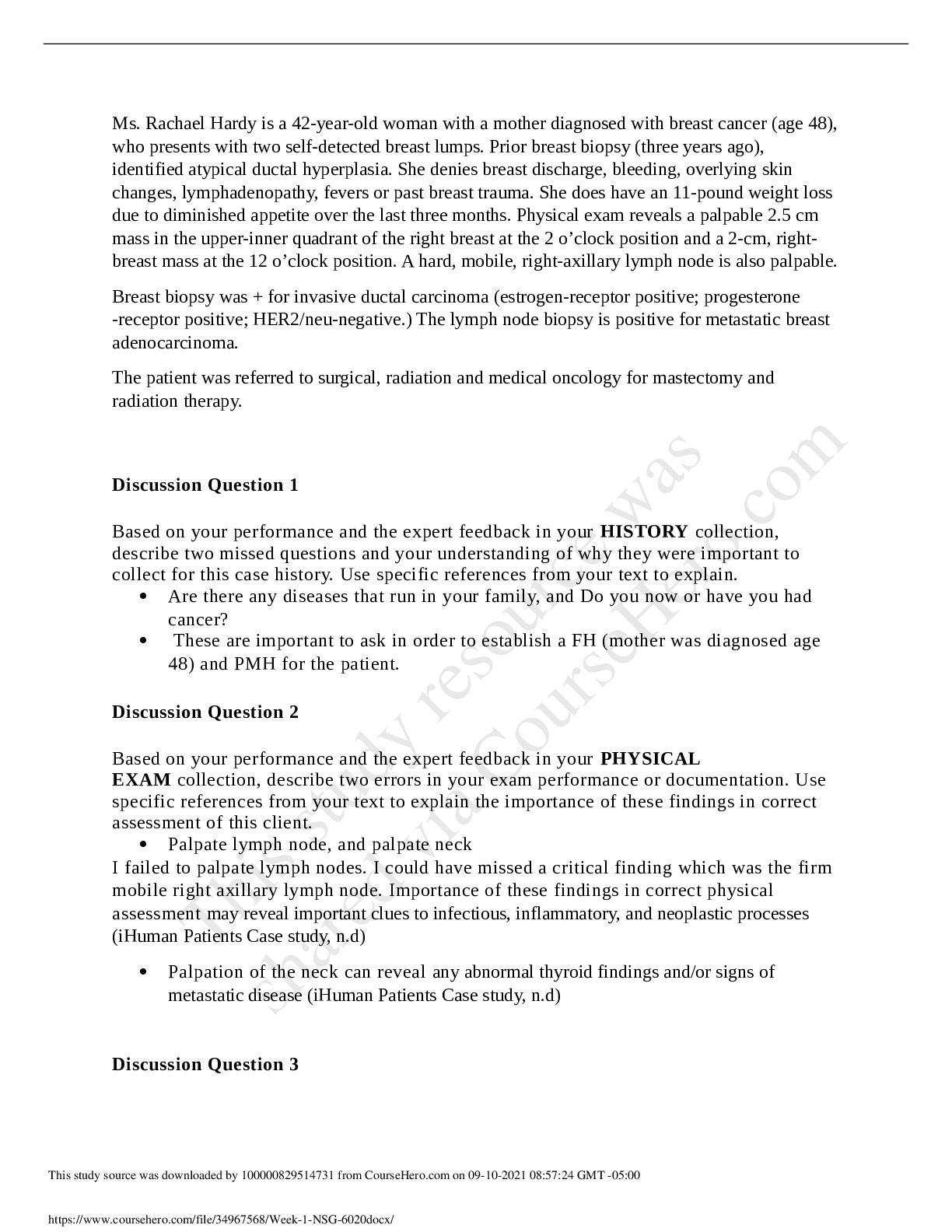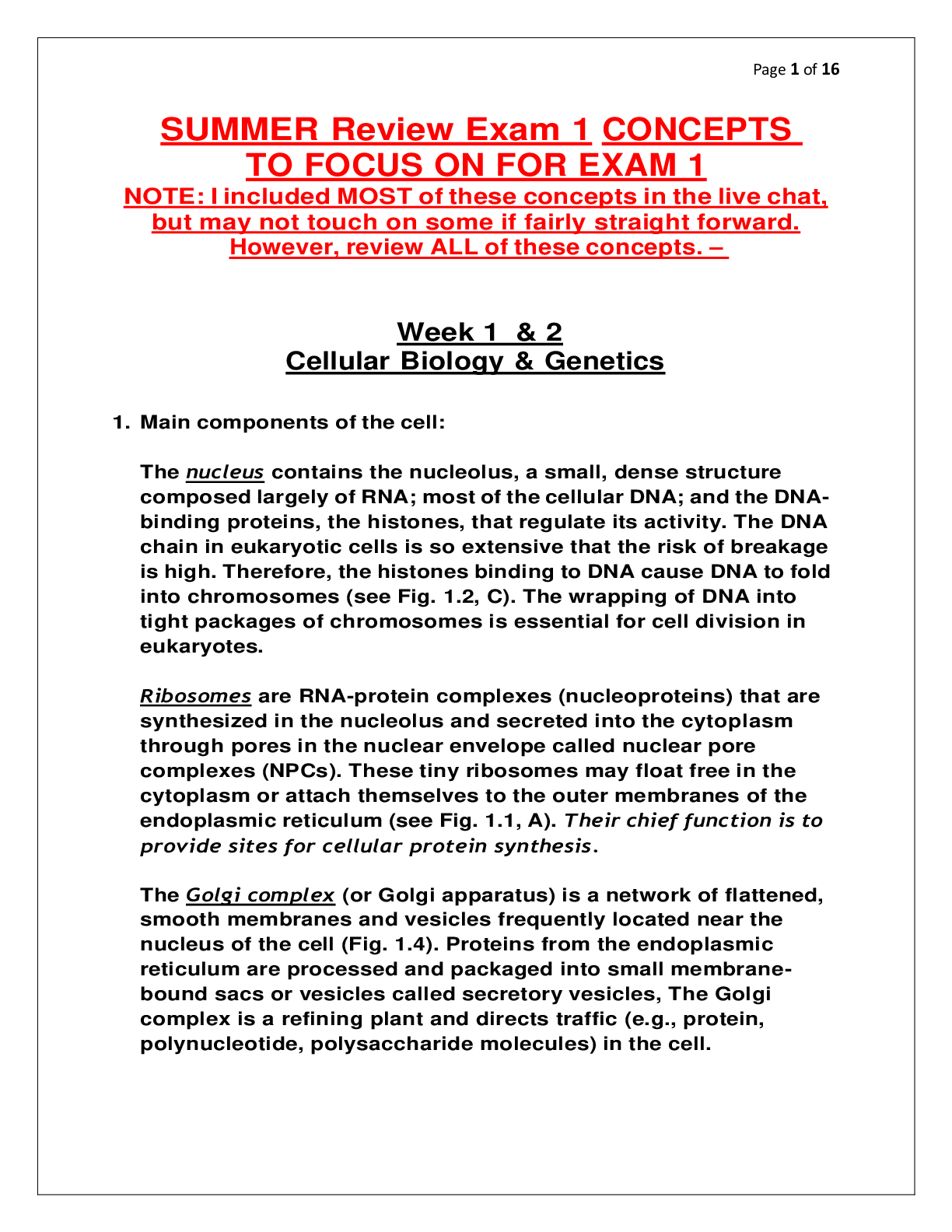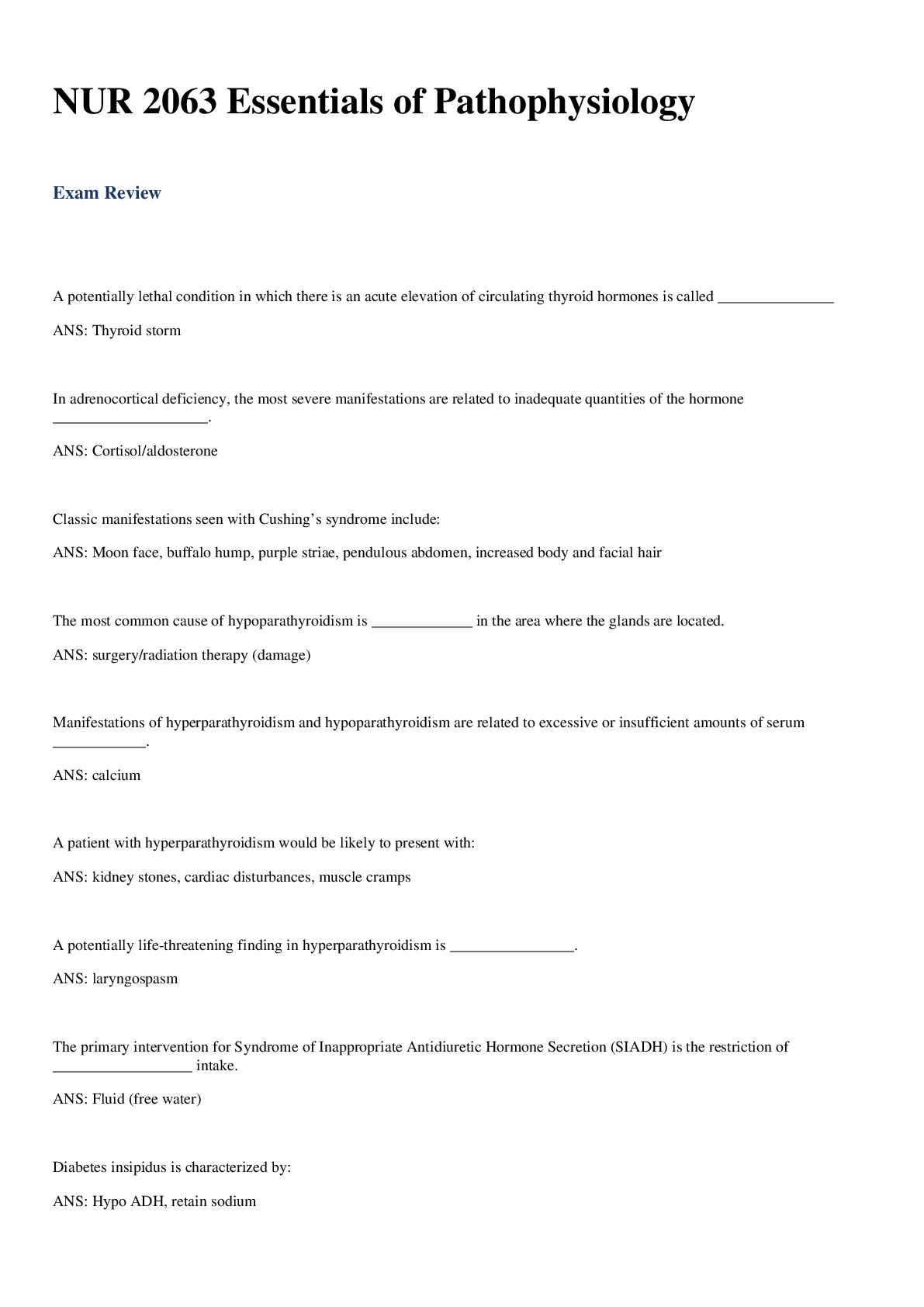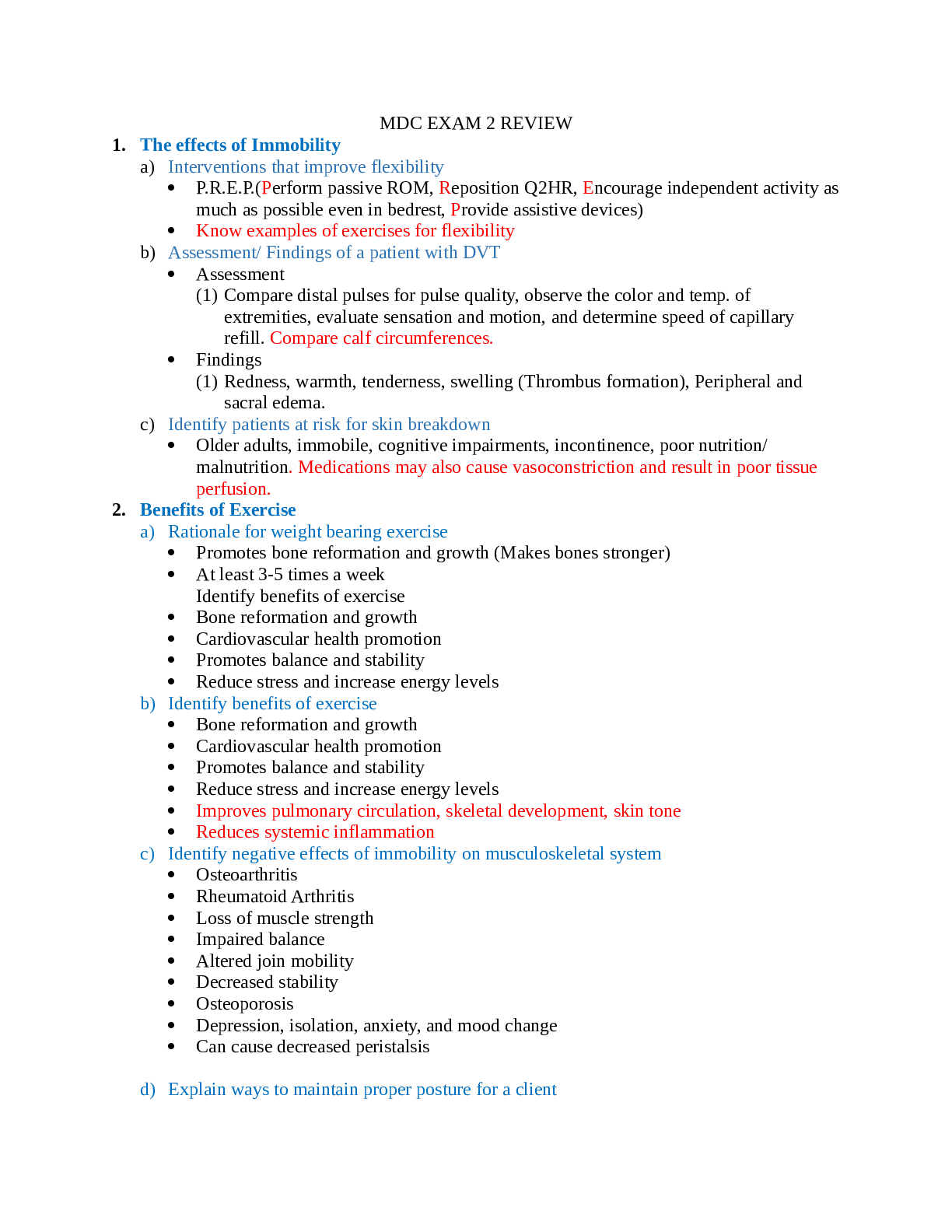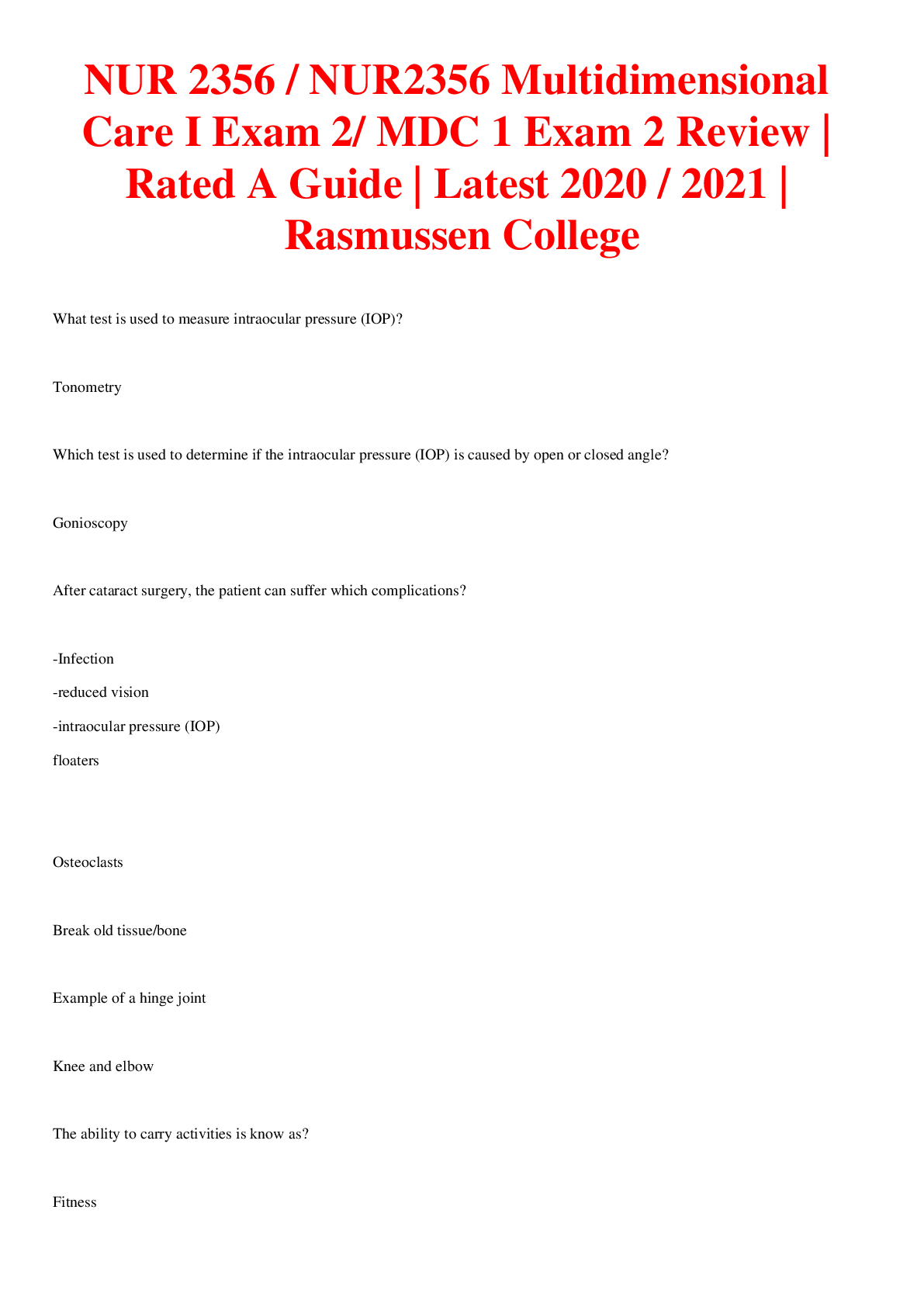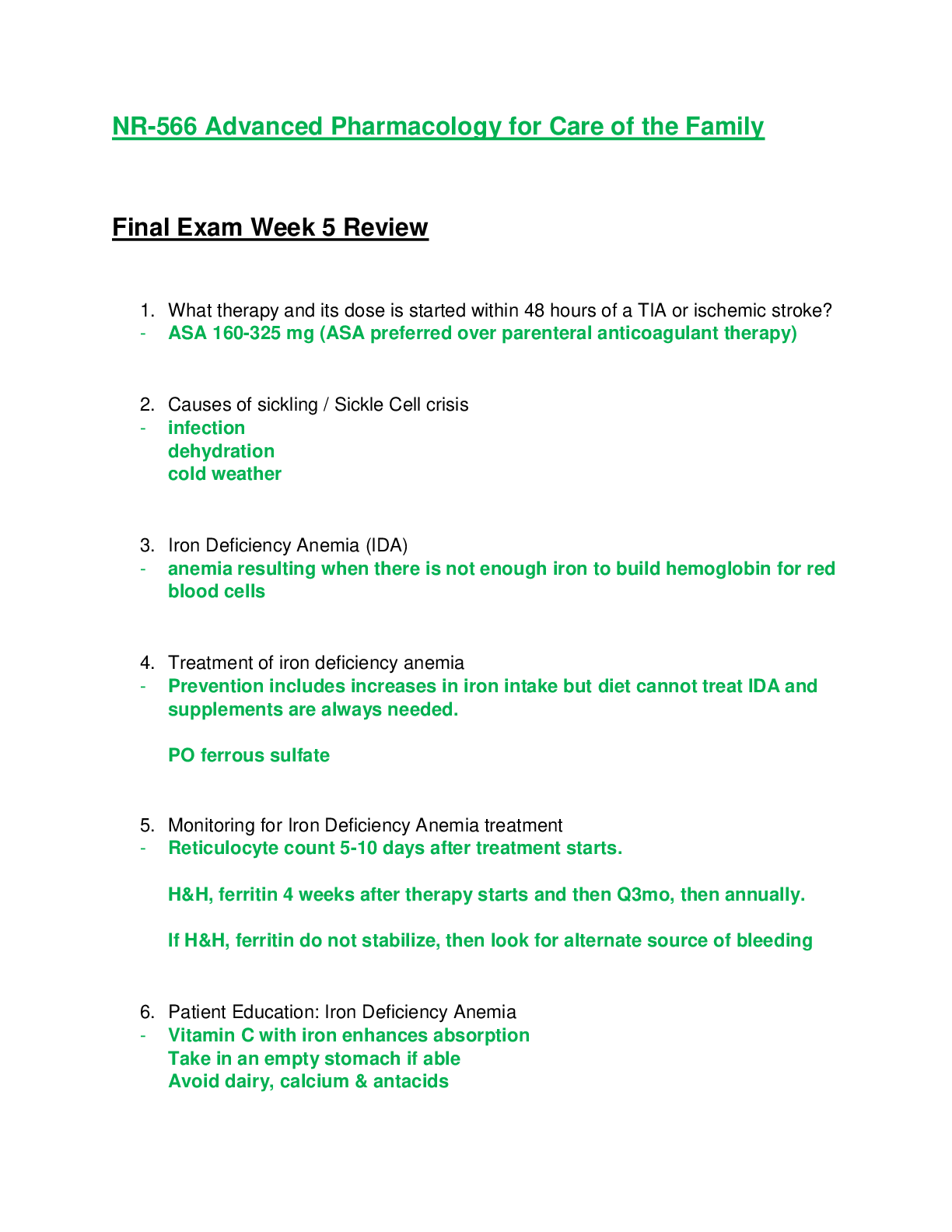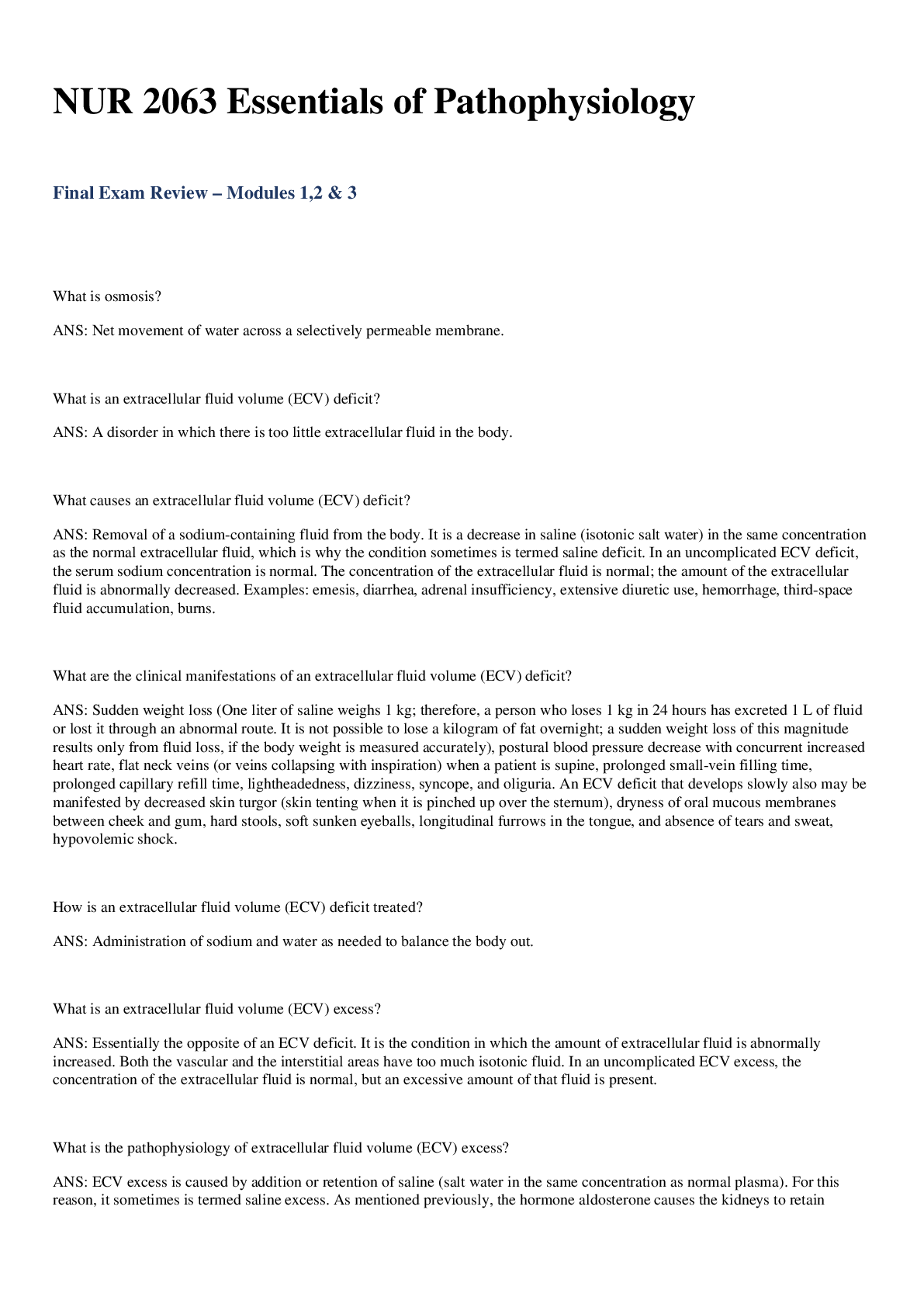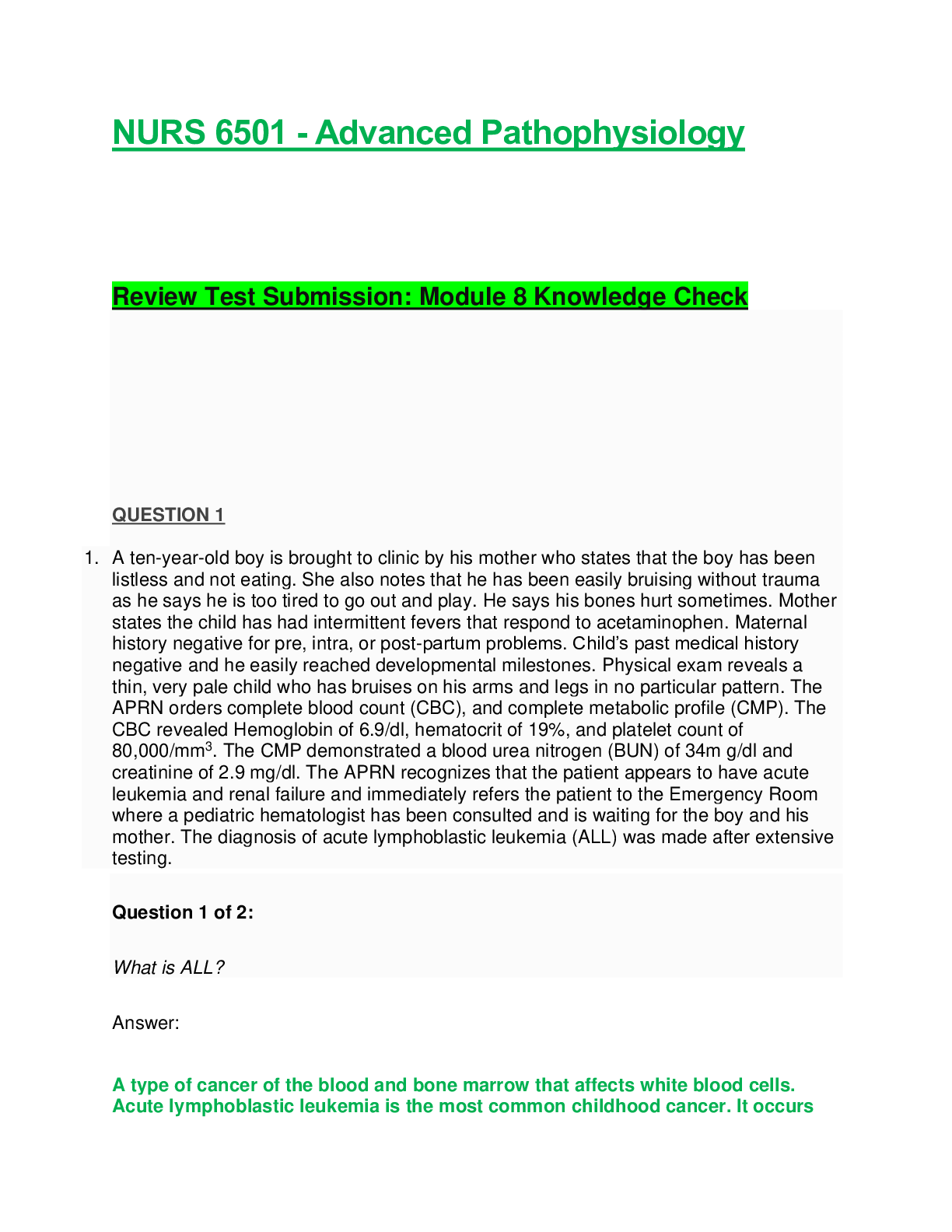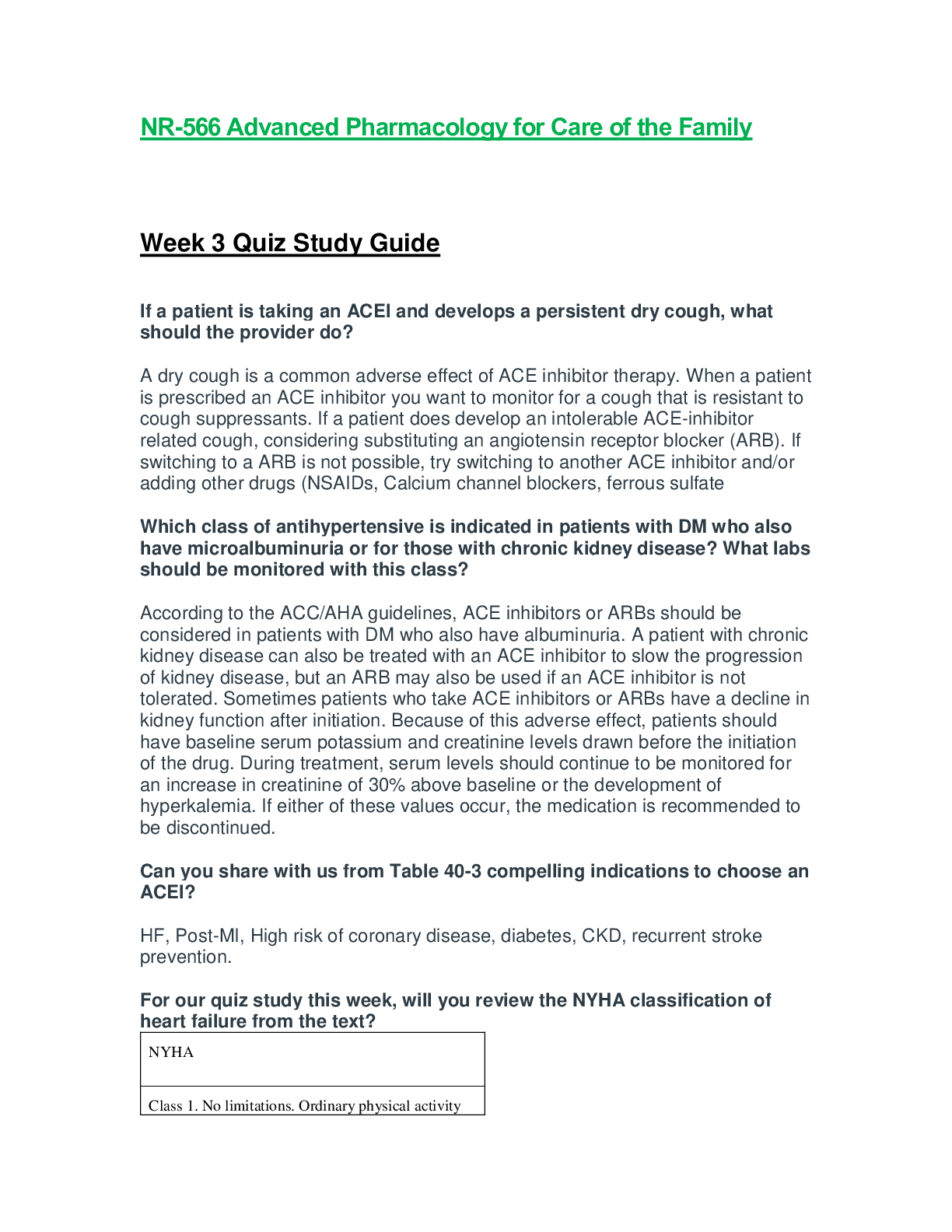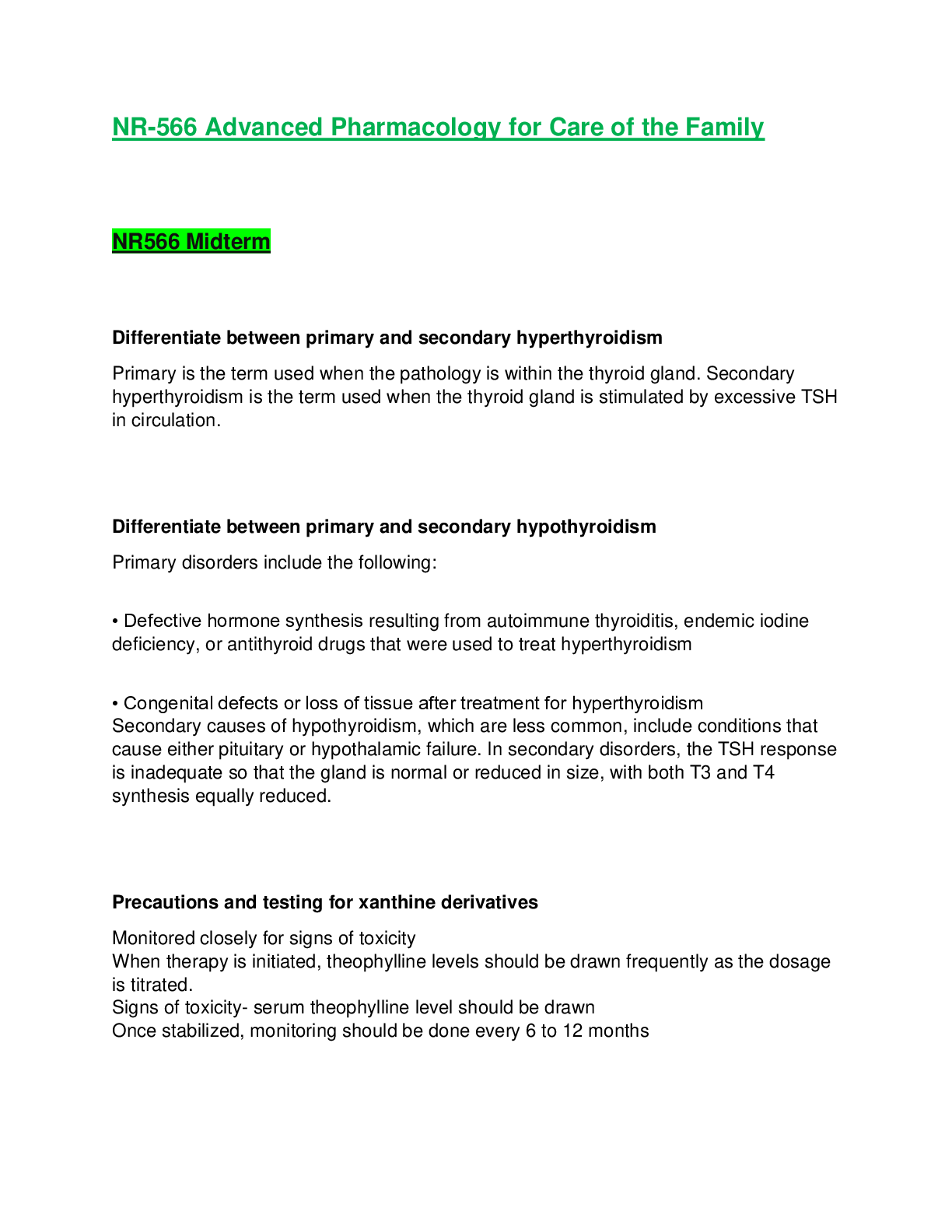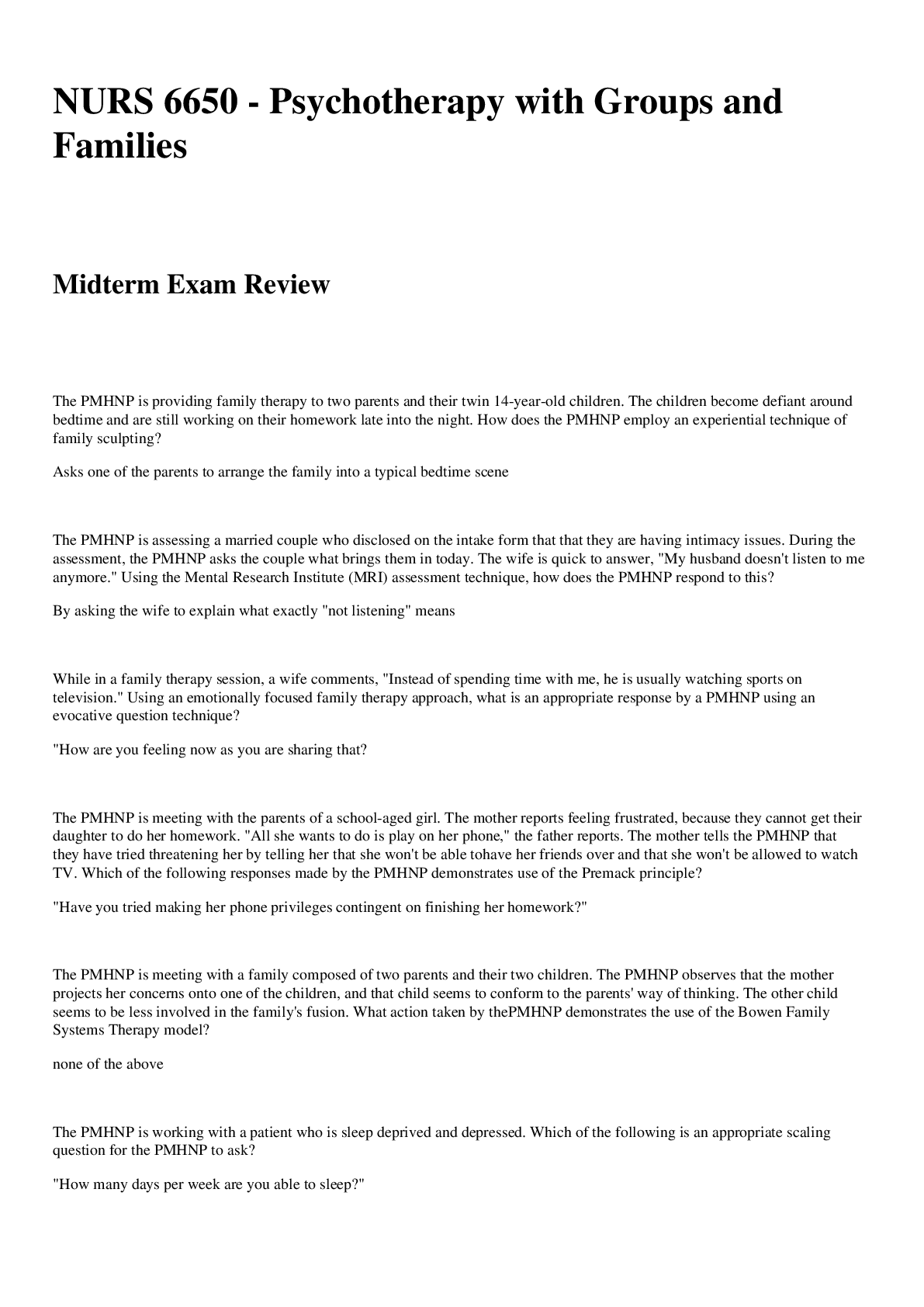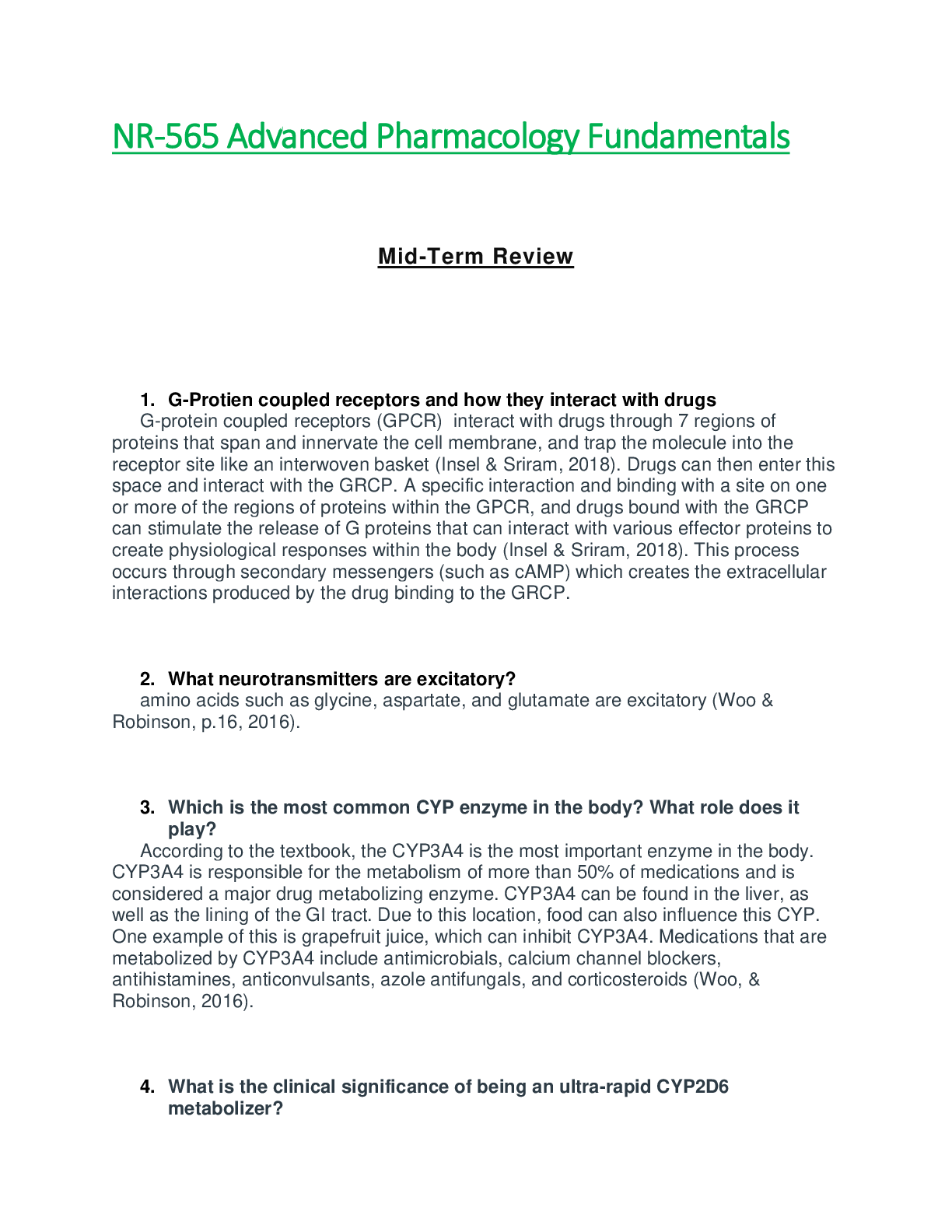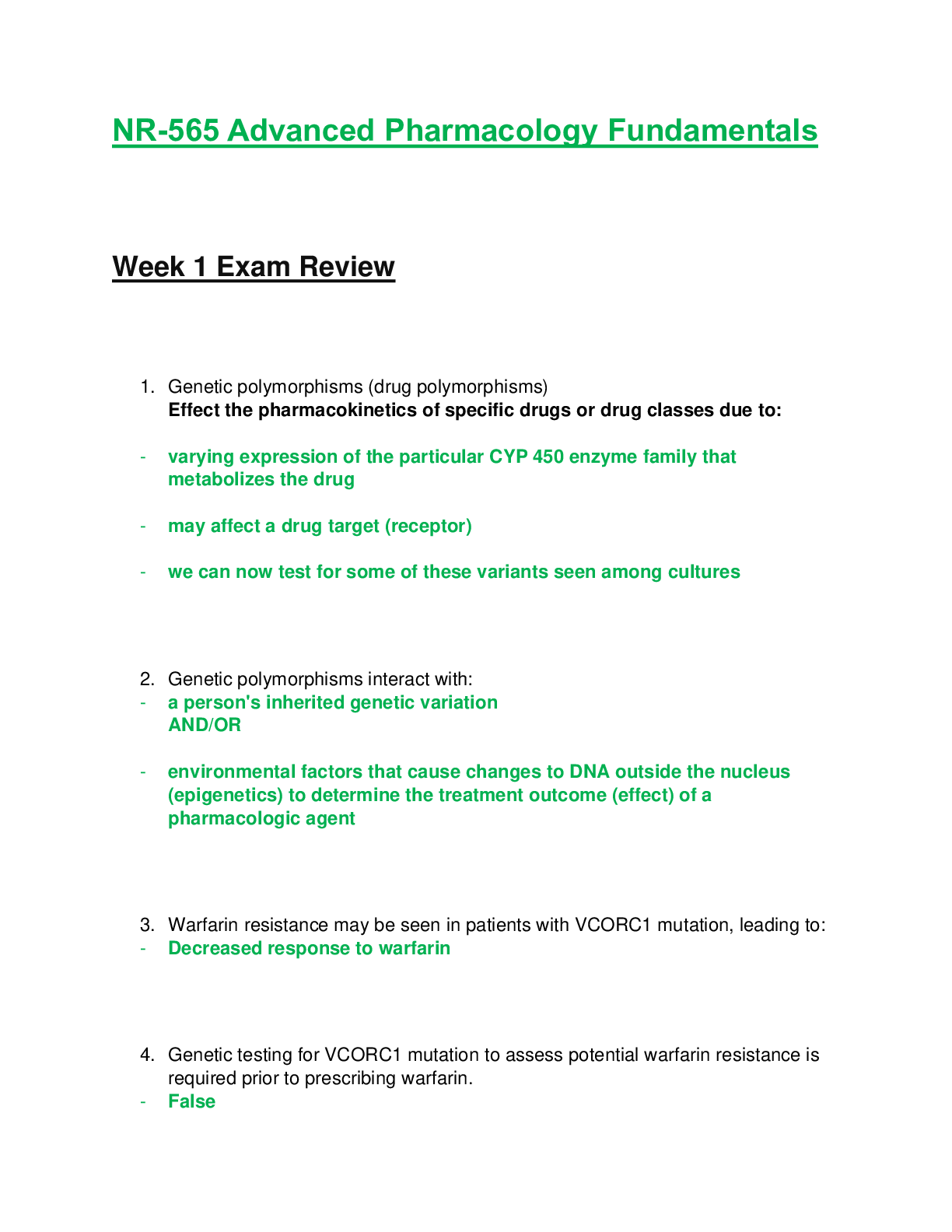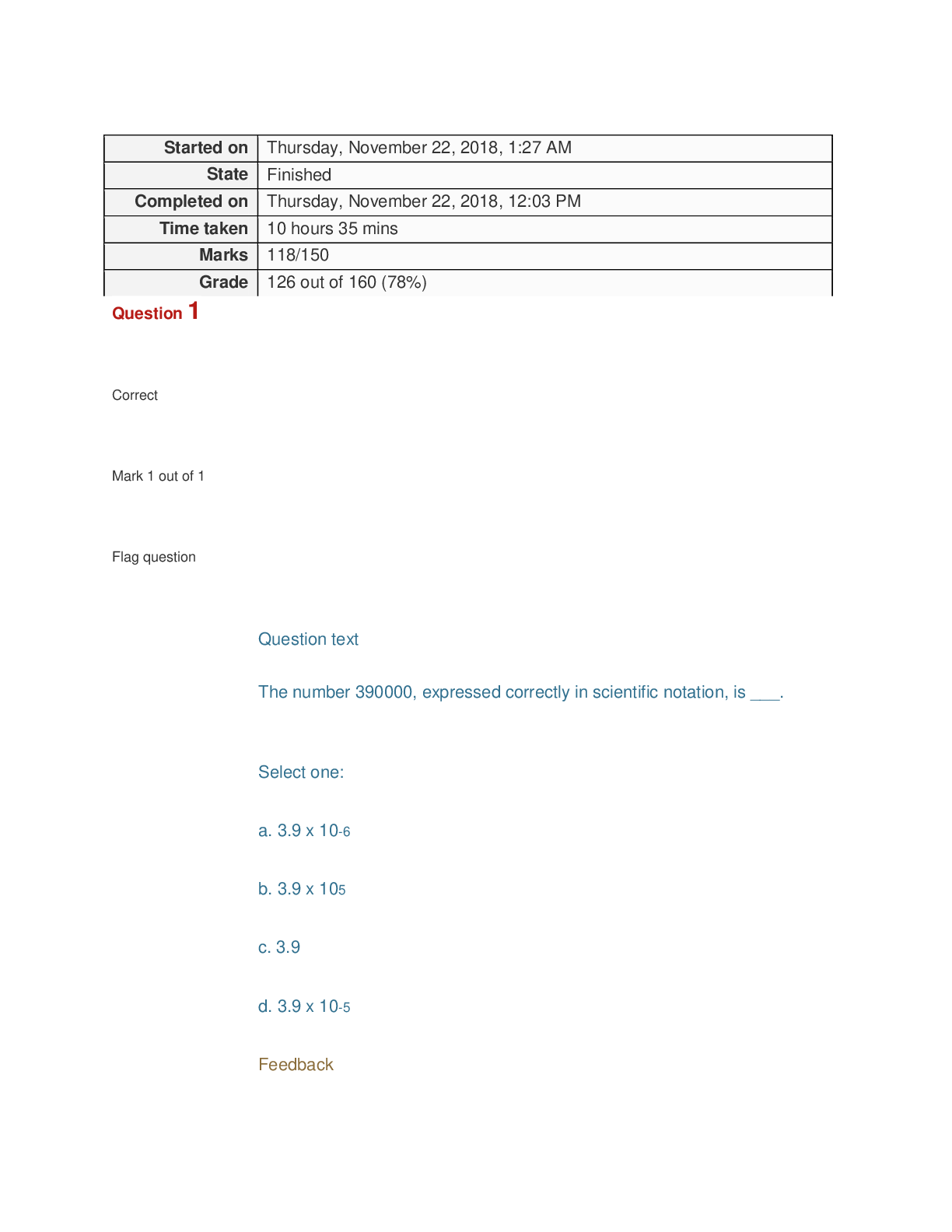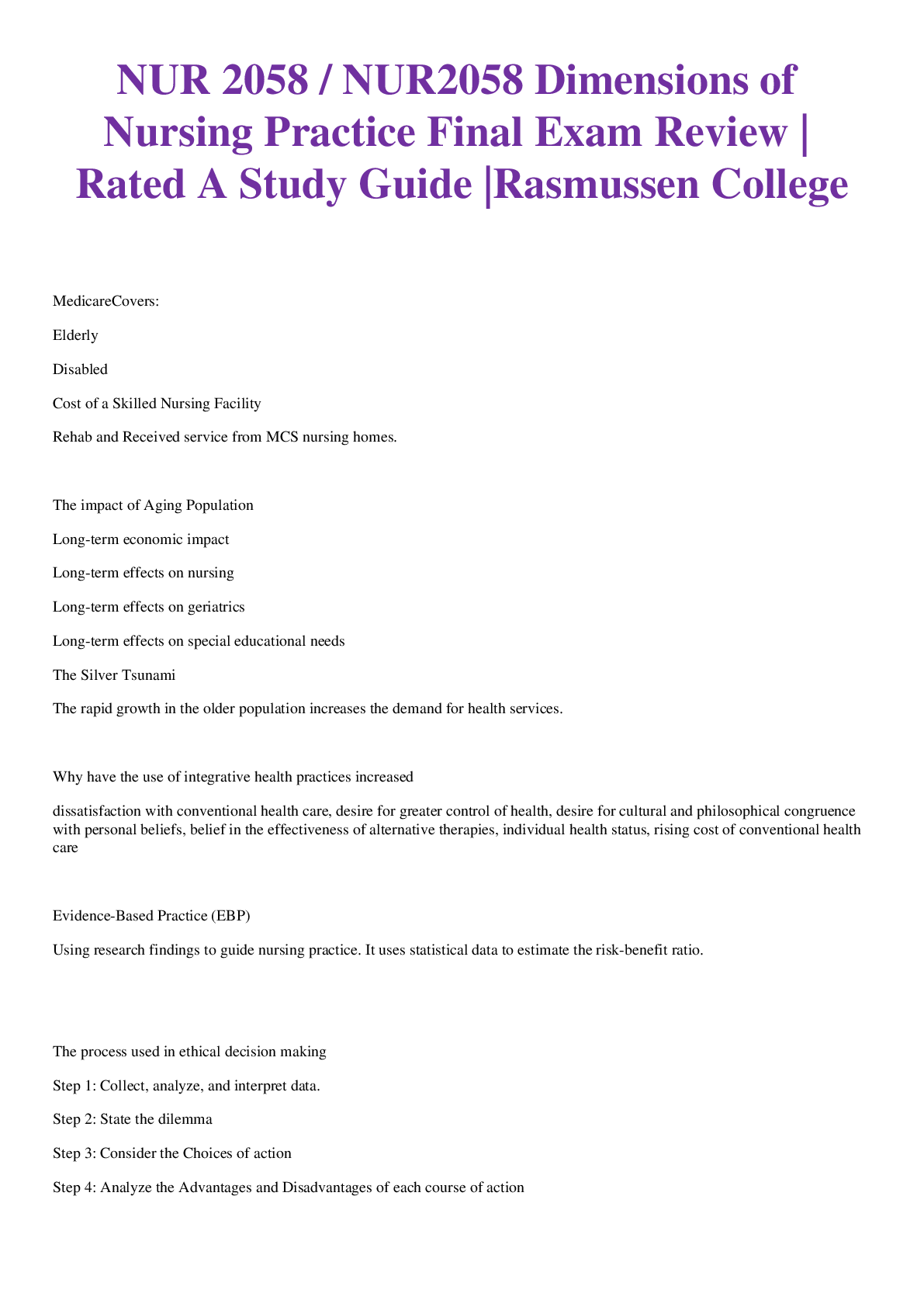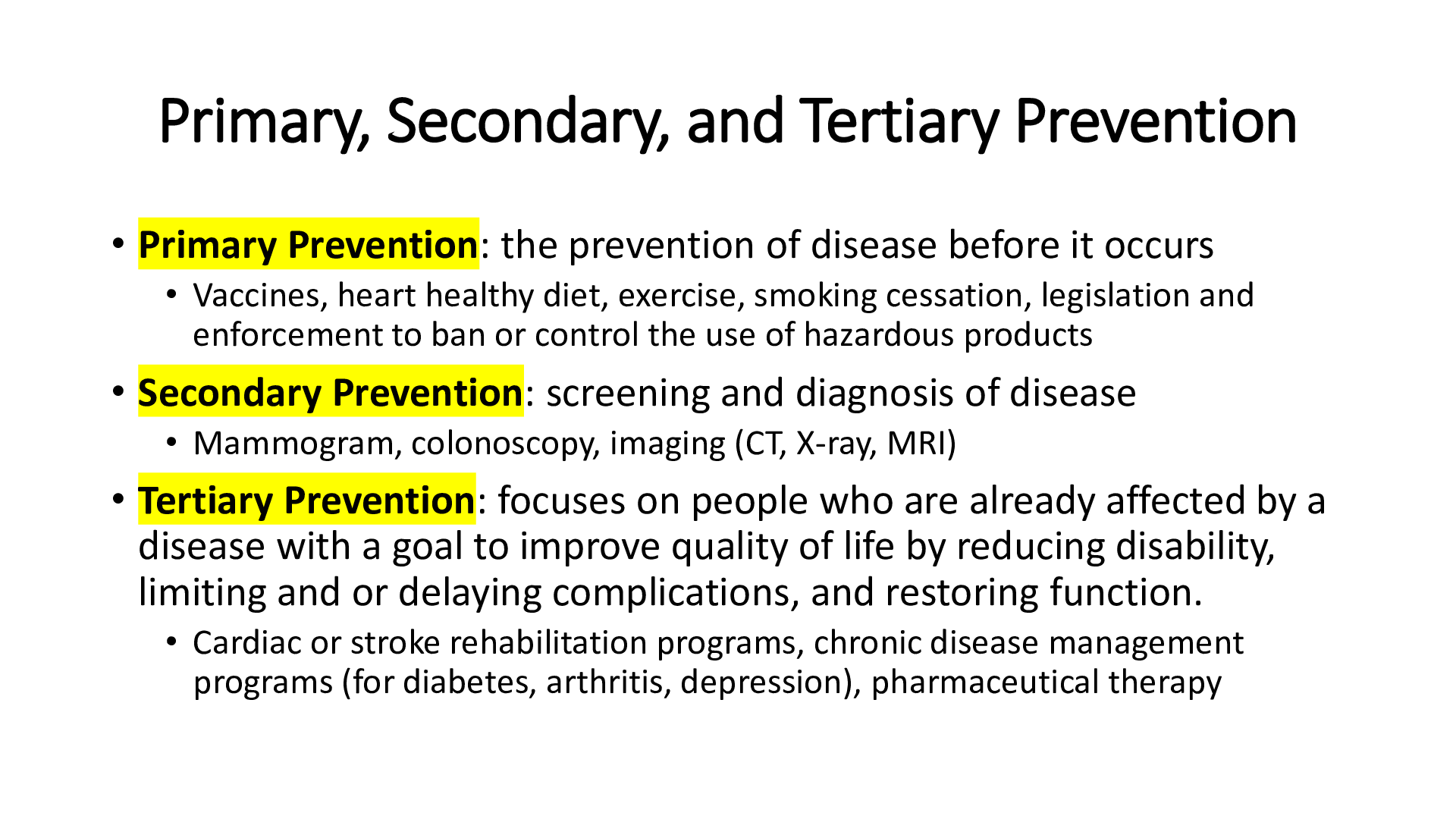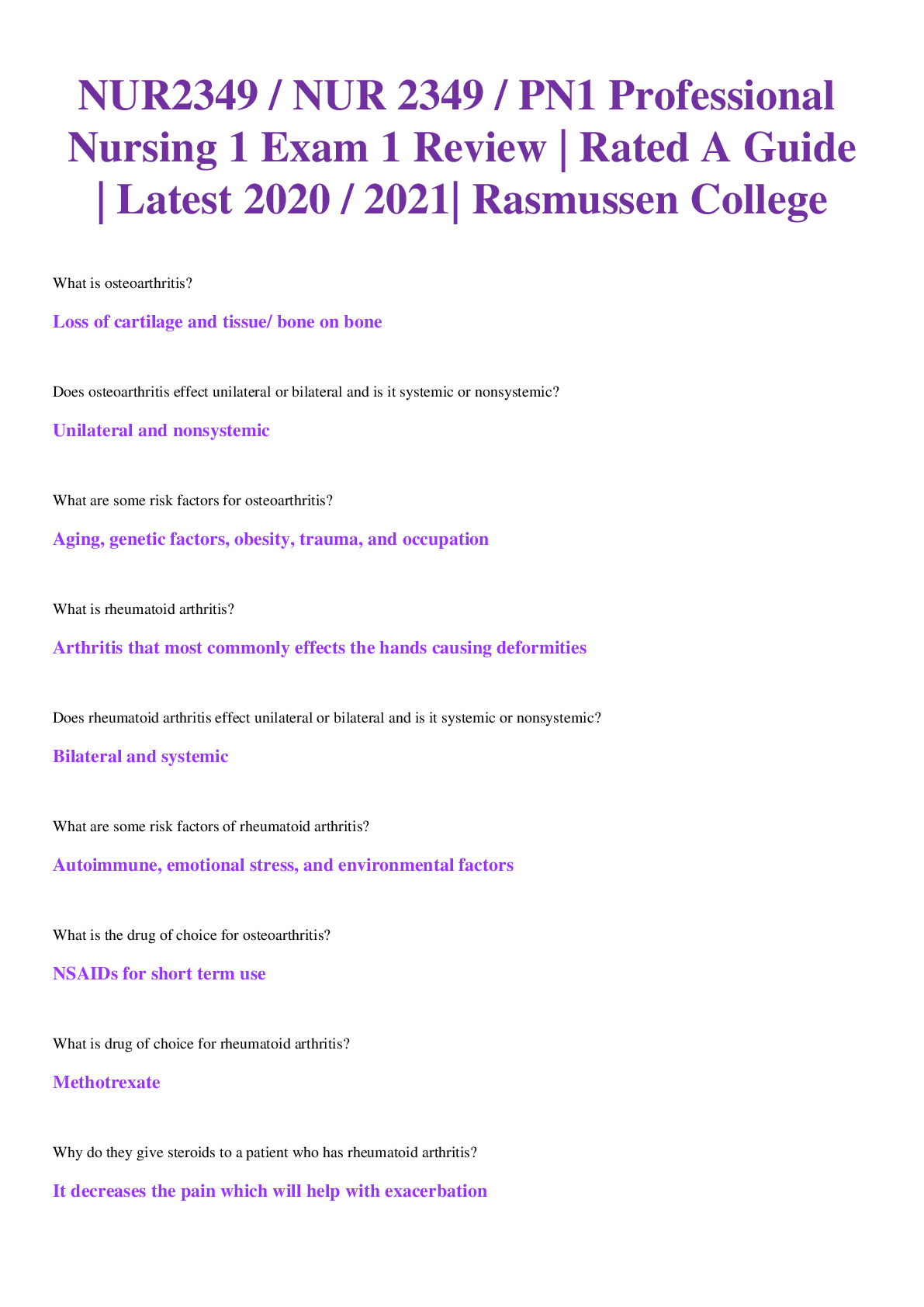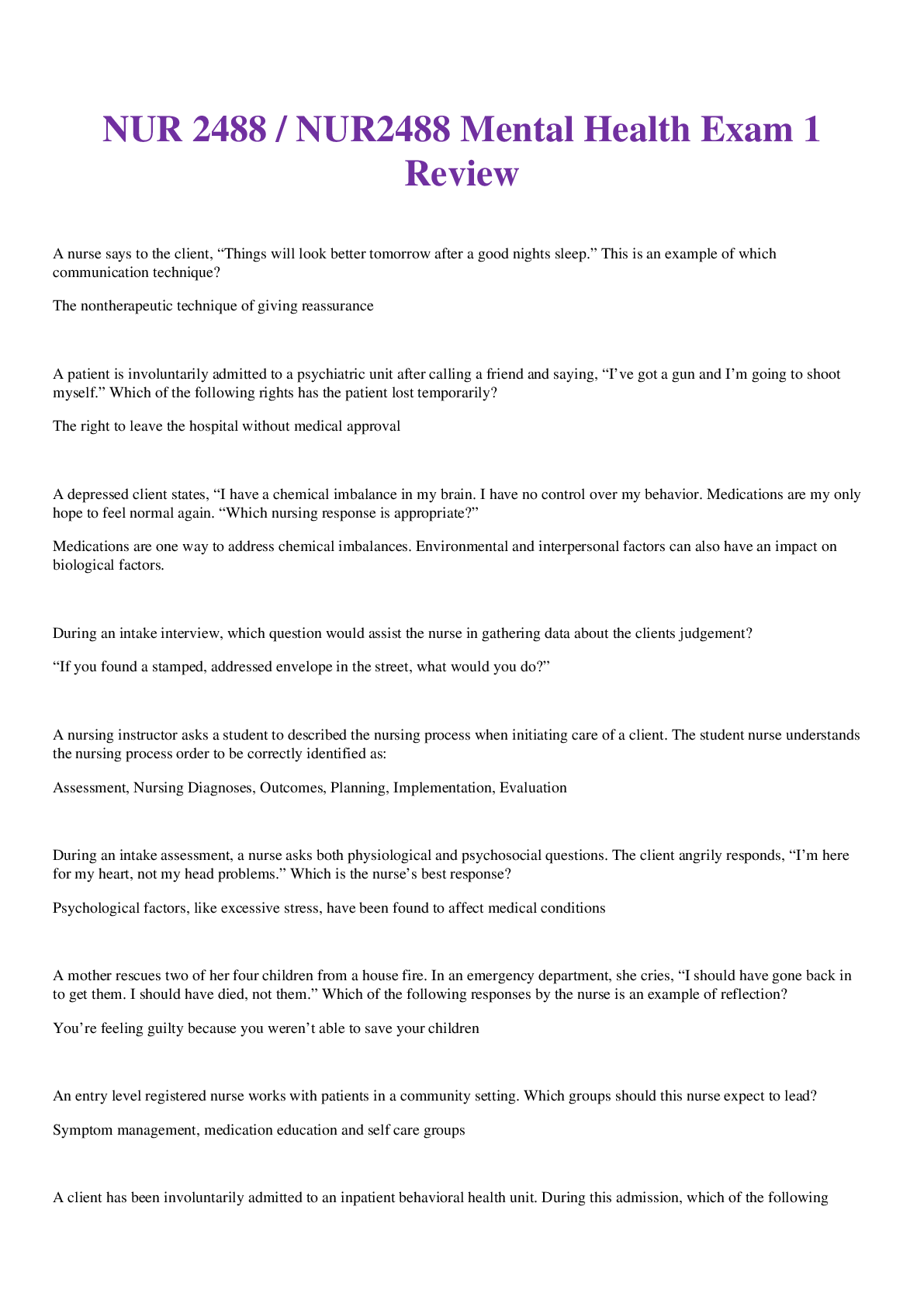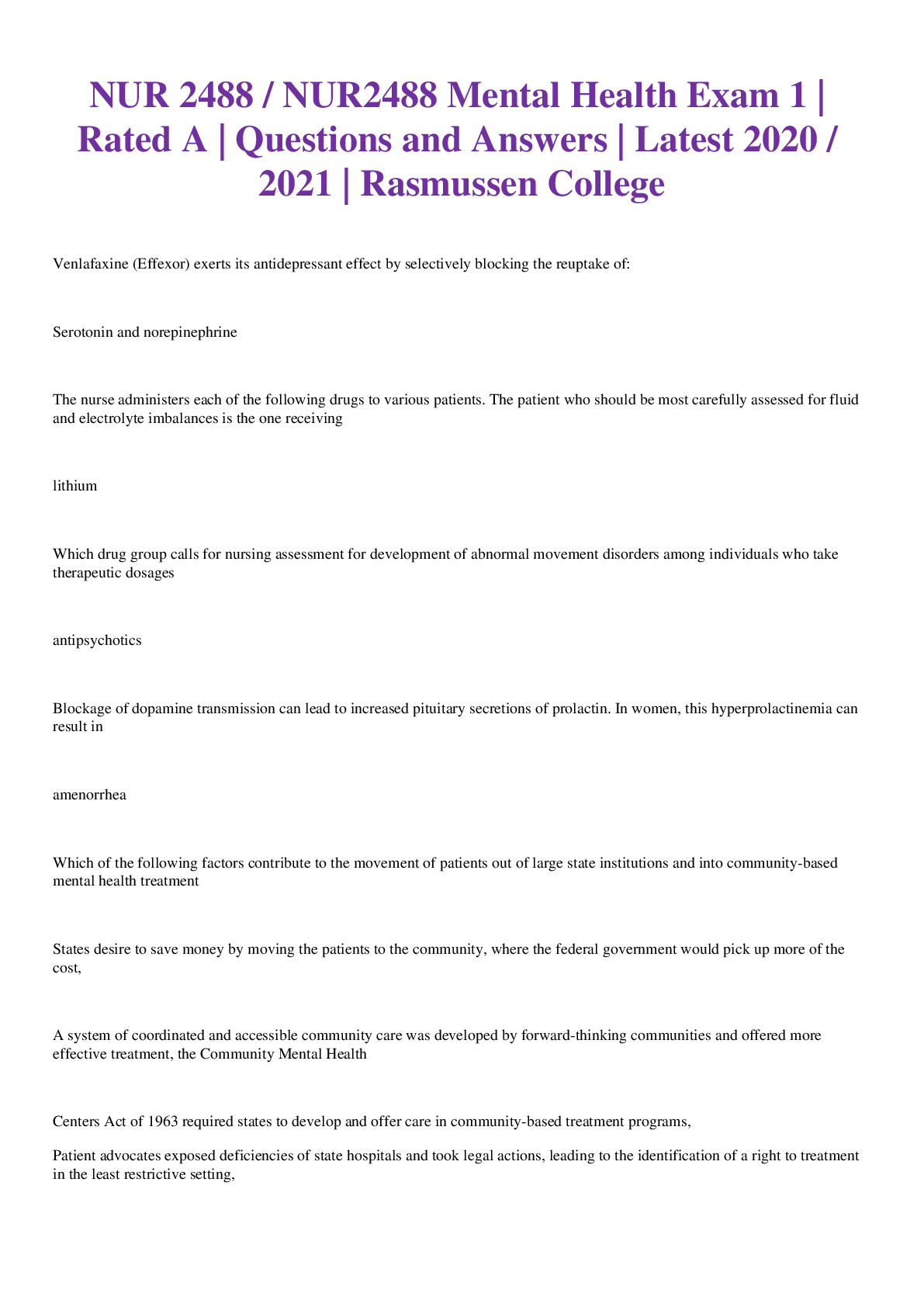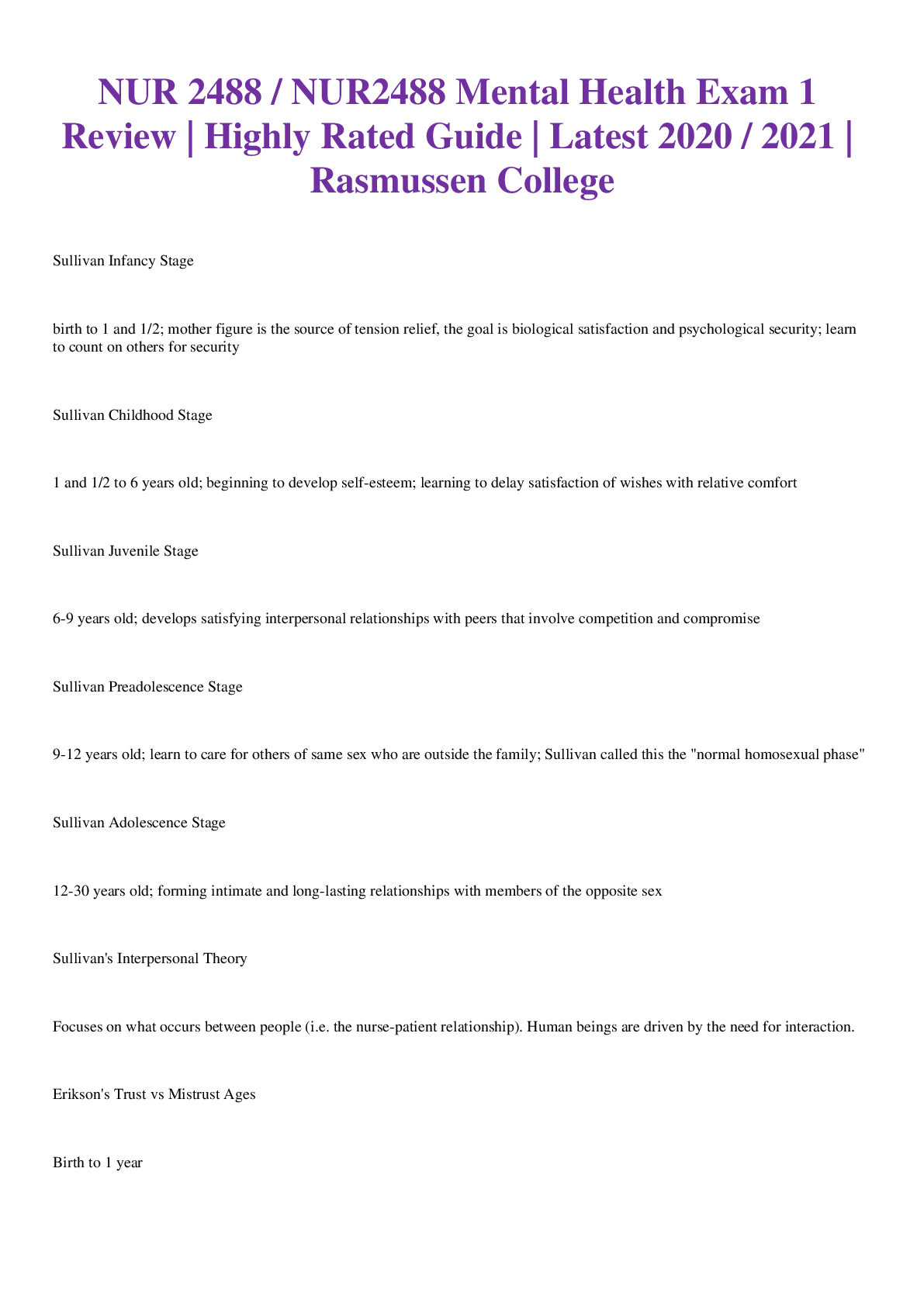Psychology > EXAM REVIEW > PSYCHOLOGY 2035A Chapter_06__The_Self (All)
PSYCHOLOGY 2035A Chapter_06__The_Self
Document Content and Description Below
Chapter_06__The_Self 1. is an organized set of beliefs about the self. 2. What you believe to be true about yourself is called a. self-ideal. b. public self. 3. Which of the following is NOT... one of the factors that help shape our vision of our possible selves? a. Past experiences b. Biology 4. According to your textbook, people are motivated to maintain a(n) view of the self. a. accurate b. positive 5. The term selves to refer to one’s conceptions about the kind of person one might become in the future. 6. Some researchers believe that self-concept is most likely to change when a person 7. Emily believes that she is outgoing and fun to be around. This belief is most likely to change under which of the following conditions? 8. A mismatching of self-perceptions is termed a. ideal self. b. self-discrepancy. 9. According to E. Tory Higgins, which of the following is NOT one of the three types of self-perceptions that people have? a. Unrealistic b. Actual 10. According to E. Tory Higgins, a discrepancy between the actual self and the ideal self is most likely to trigger which of the following emotions? a. Sadness b. Anxiety c. Guilt d. Irritability 11. A woman who describes herself as “frank and honest” but who, in fact, lies frequently is manifesting her 12. If you are feeling anxious because you know that you should have visited your sick great aunt in the convalescent home over the holidays, you are experiencing a discrepancy between your actual self and your self. a. unrealistic b. possible c. ought d. working 13. Matt is slightly overweight and out of shape but would like to be lean and athletic. His most probable emotional reaction to this type of self-discrepancy would be a. anger. b. irritability. c. guilt. d. disappointment. 14. As actual-ideal discrepancies outnumber actual-ideal congruencies, cheerfulness decreases and eases. 15. Which of the following is NOT a coping technique used to deal with self-discrepancies? 16. Charles has been going out drinking frequently in response to feelings of self-discrepancy. He is using a type of coping technique known as a. social comparison. b. blunting self-awareness. c. changing one’s behavior. d. expanding the possible self. 17. Tanisha is taking tennis lessons in response to a self-discrepancy in the area of athleticism. She is using the coping technique of a. improving self-awareness. b. blunting self-awareness. c. expanding the possible self. d. changing one’s behavior. 18. Which of the following researchers proposed social comparison theory? a. Albert Bandura …………………………………….CONTINUED…………………………………………… [Show More]
Last updated: 1 year ago
Preview 1 out of 32 pages

Reviews( 0 )
Document information
Connected school, study & course
About the document
Uploaded On
Feb 20, 2021
Number of pages
32
Written in
Additional information
This document has been written for:
Uploaded
Feb 20, 2021
Downloads
0
Views
75


